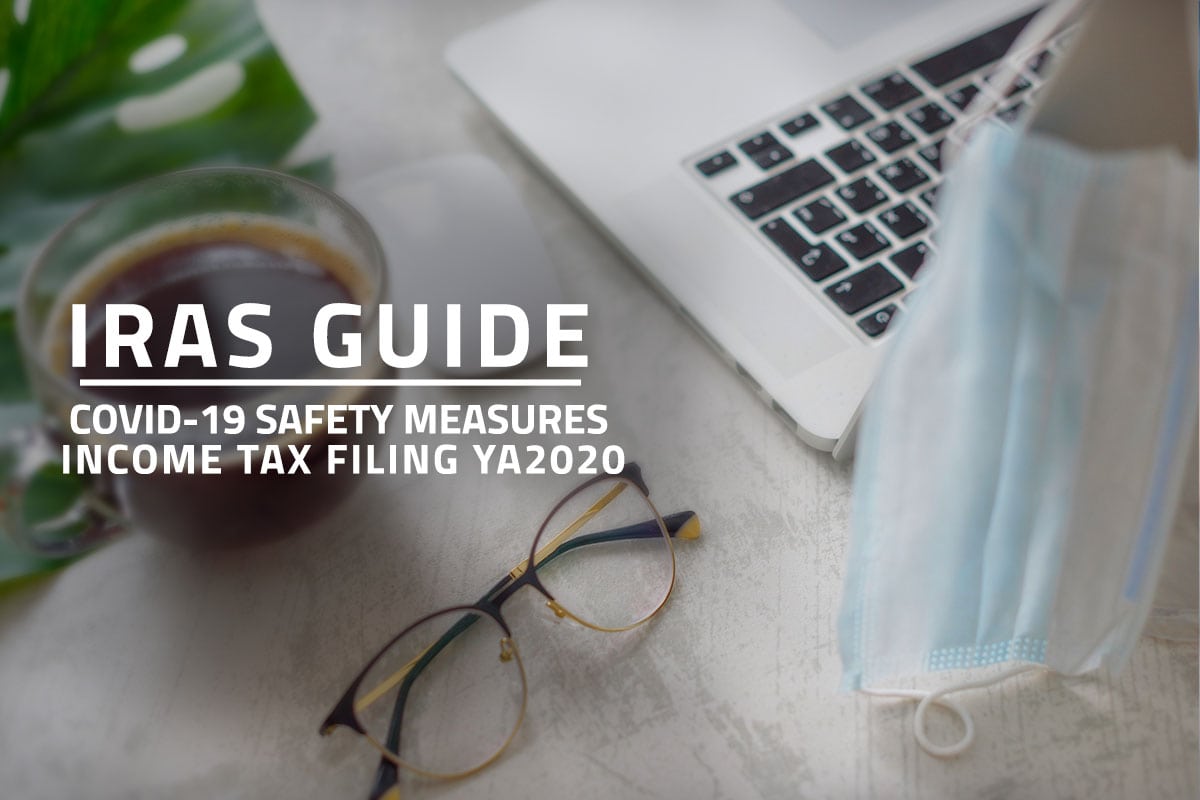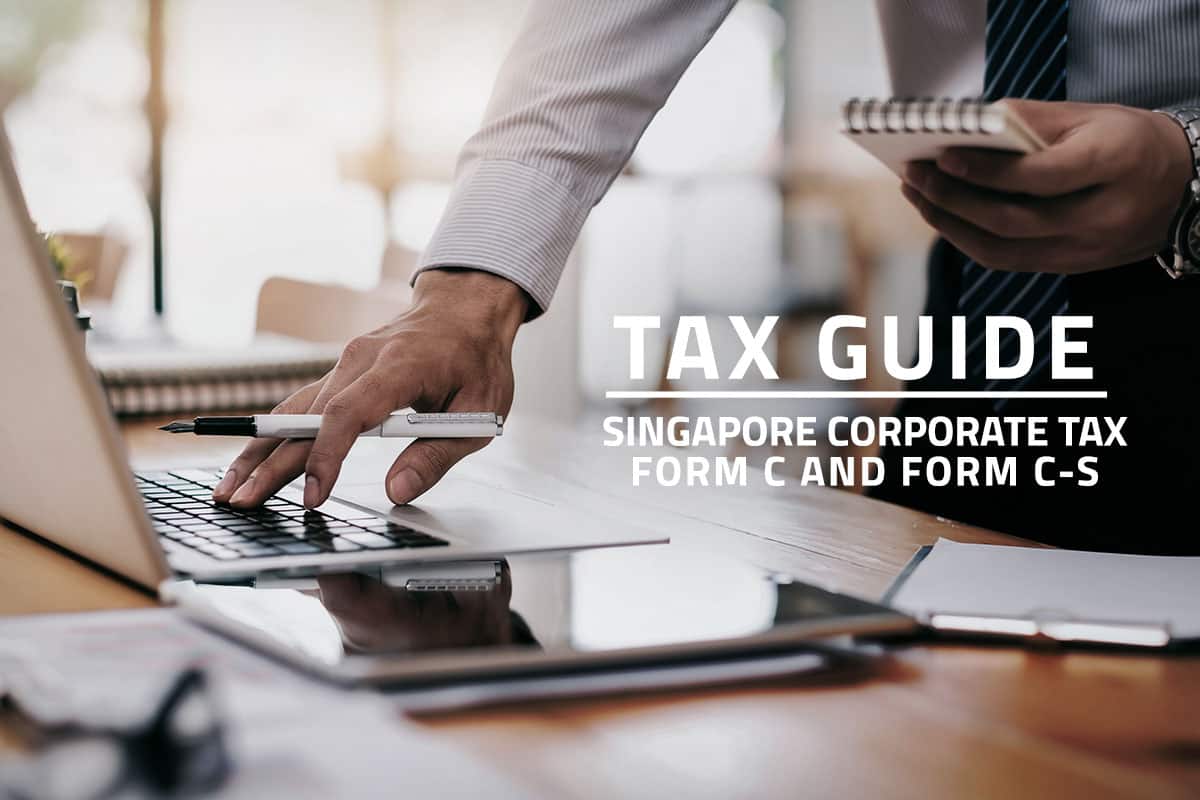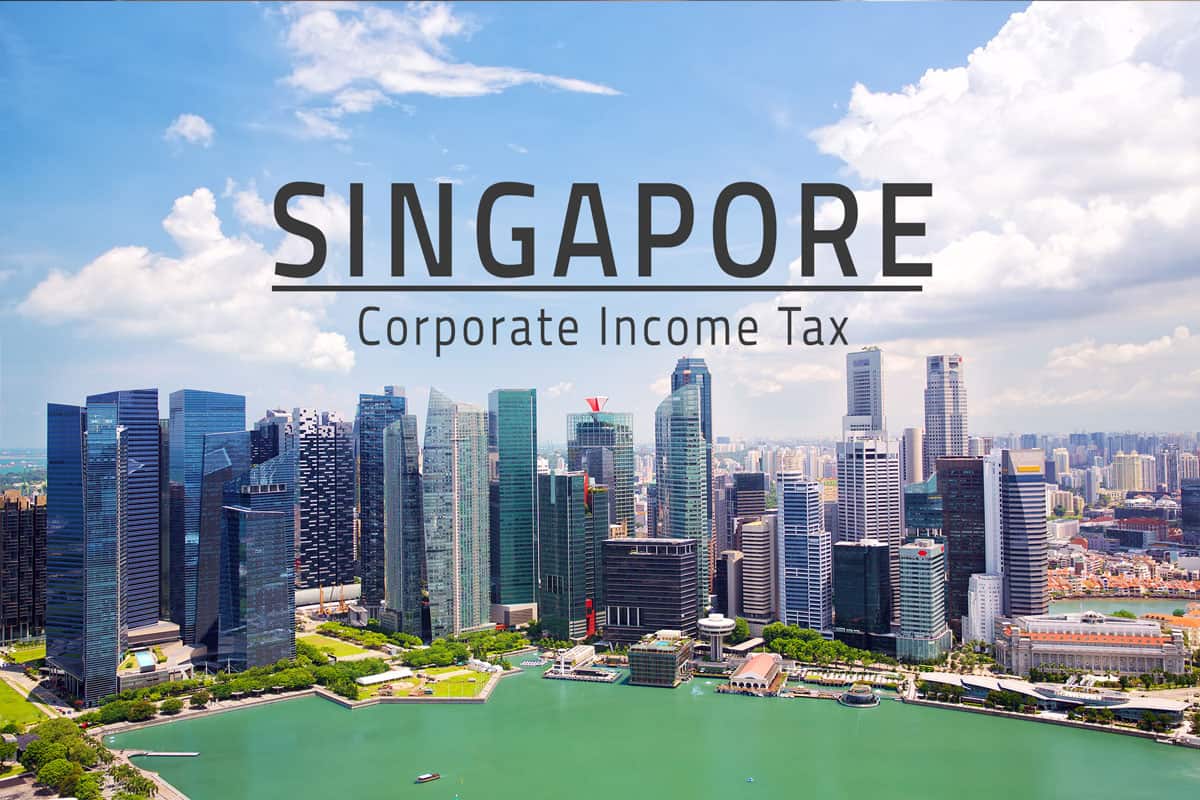Corporate tax filing season is kicking off in Singapore and accountants and companies should start preparing their financial documents to make sure they comply with this year’s deadline.

In the previous months affected by the COVID-19 pandemic, the Inland Revenue Authority of Singapore (IRAS) has introduced a set of one-time measures to cushion the impact of taxes in businesses cash flows this year. These support options are outlined and enacted in accordance with other solidarity measures announced by the local government in this year’s Singapore Budget 2020 announcements.
The following article outlines key details about YA2020 corporate tax season in Singapore to help Singapore companies and businesses prepare for corporate tax filing in these uncertain circumstances.
Which companies need to file corporate taxes?
All companies that have generated income and have closed their first financial statements during the fiscal year of 2019 are required to file corporate taxes in Singapore in 2020, regardless of whether the business generated a profit or a loss during that period.
On the other hand, companies that have not recorded any activity during 2019 – also known as dormant companies – don’t have to file corporate taxes for YA 2020.
Key Features, Changes and YA2020 Deadlines
As a result of the COVID-19 pandemic, the following changes have been introduced by IRAS for the YA 2020 tax season:
- A tax rebate of 25% of the taxes payable for YA 2020 will be granted to companies by IRAS, up to an amount of $15,000.
- Companies are able to carry-back any unutilized capital allowances (CAs) or trade losses from the YA 2020 to up to three years (YA 2017, 2018, and 2019), also known as enhanced carry-back reliefs.
The corporate tax filing deadline in Singapore for YA 2020 is December 15, 2020 and the required C-S and C forms can be filled in via the myTax Portal. In accordance with Singapore’s safety measures, it is compulsory for all companies to e-file their tax returns online this year.
Both newly incorporated businesses and companies with more than three years in operation are required to file corporate taxes however new businesses will pay taxes based on a different structure of rates.
The effective corporate tax rate for new businesses in Singapore is the following:
- Taxable income from 0 to S$100,000 – Tax rate: 4.25%.
- Taxable income from S$100,001 to S$200,000 – Tax rate: 8.5%
- Taxable income from $200,001 to S$2,000,000 – Tax rate: 17%
Meanwhile, this is the rate structure for businesses with more than 3 years in operation:
- Taxable income from 0 to S$10,000 – Tax rate: 4.25%.
- Taxable income from S$10,001 to S$200,000 – Tax rate: 8.5%
- Taxable income from $200,001 to S$2,000,000 – Tax rate: 17%
What documents are needed for filing corporate taxes in Singapore?
Companies must be registered and authorized by IRAS to access their CorpPass accounts to file their corporate taxes for YA 2020. Singapore companies and businesses must submit their Estimated Chargeable Income (ECI) and Form C or Form C-S to IRAS to remain compliant with local corporate tax laws.
Another document needed to file corporate tax returns in Singapore is Form C or a simplified version of Form C known as Form C-S. Downloadable versions of both forms have been removed from the IRAS website this year as e-filing will be mandatory due to the COVID-19 circuit breaker measures. For more guidance on the e-filing process, refer to our articles on using Form C/C-S, computing corporate income tax returns and using the IRAS mytax portal.
Conclusion
The changes introduced by IRAS in light of the COVID-19 pandemic could complicate the matter of filing corporate taxes for Singapore companies and business owners, especially those running a small or mid-sized business.
Seeking the advice of a qualified tax expert with in-depth knowledge of Singapore’s tax incentives, rebates and reliefs can help minimize mistakes in filing your tax returns as well as ensure compliance with IRAS fast-changing guidelines this corporate tax season YA2020.
Related Posts
Quick Guide: Singapore Corporate Tax Form C and C-S
Filing Singapore corporate tax returns for YA2020 will be a little bit different compared to…
An Overview of the Singapore Corporate Tax Rate
Companies are required to file annual income tax returns to the Inland Revenue Authority of…










